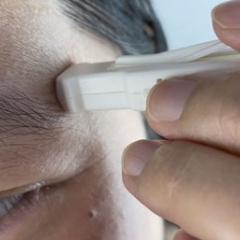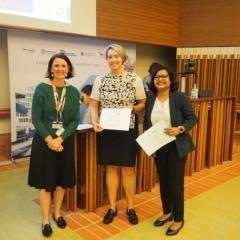The ABC program Catalyst has featured The University of Queensland Diamantina Institute's Professor H. Peter Soyer and the new VECTRA WB360, located at the Princess Alexandra Hospital.
Catalyst is Australia's flagship science documentary program showcasing Australian and international stories.
In this programme, Catalyst uncovers the secrets to healthier skin, gets up close and personal with some of the most common rashes, spots and blemishes, and how technology is being used to help in the detection and protection against skin cancer.
Within the episode, Professor Soyer describes the VECTRA WB360 total body imaging and how it will impact on the early detection of melanoma.
Professor Soyer described the role technology will play in the future of patient care, and stated that the “aim is a world without melanoma”.
Within milliseconds, the VECTRA WB360 captures multiple images of 95% of the body’s skin.
The machines software then produces a high resolution, 3D avatar of the body, which allows moles and lesions to be looked at closely and compared easily in subsequent patient visits.
The machine is currently being used in clinical trials at the Dermatology Research Centre at The University of Queensland Diamantina Institute.
Watch the full episode on ABC iview.
Related Stories:
- New technology to revolutionise Melanoma detection for Queenslanders
- New genetic research to help early melanoma detection
- UQ focuses on moles to unlock melanoma mystery



